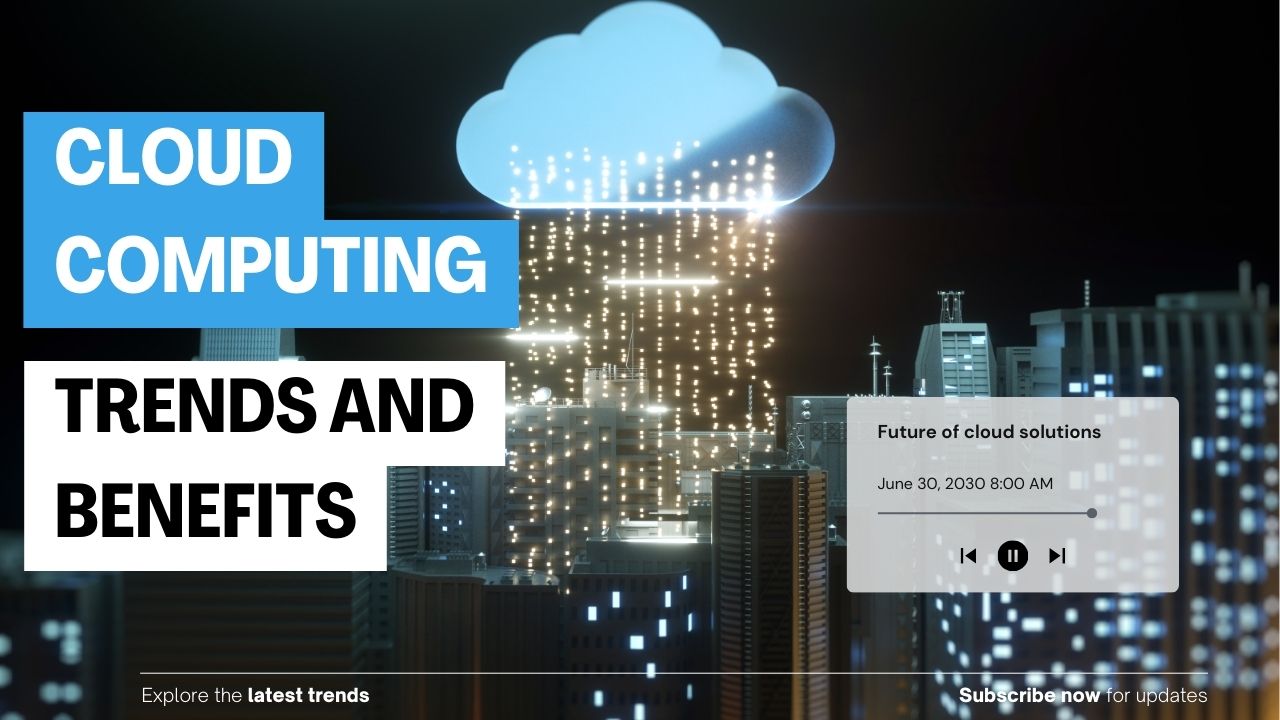1.Introduction to Cloud Computing

1.1 Definition and Overview

Cloud computing refers to the delivery of computing services over the internet—things like storage, processing power, and software. Instead of keeping files on a local computer or server, cloud computing allows individuals and businesses to use remote servers to store and manage data. The key characteristics of cloud computing include:
- On-Demand Self-Service: Users can access services as needed without requiring human interaction.
- Broad Network Access: Services are available over the network, accessible from various devices.
- Resource Pooling: Providers serve multiple customers with shared resources.
- Rapid Elasticity: Resources can be scaled up or down to meet demand.
- Measured Service: Usage is monitored, controlled, and reported for transparency.
The main types of services include Infrastructure as a Service (IaaS), Platform as a Service (PaaS), and Software as a Service (SaaS).
1.2 Evolution of Cloud Computing

The journey of cloud computing began in the 1960s with the concept of time-sharing on mainframe computers. However, significant advancements in technology, especially in the 2000s, paved the way for what we know as modern cloud computing.
- Impact of Technology Advancements: The increase in internet bandwidth, virtualization technology, and the ubiquitous nature of devices have all contributed to this evolution.
1.3 Importance in Business Landscape

Cloud computing has become an essential part of modern enterprises. Its benefits are manifold:
- Cost Efficiency: Businesses can reduce expenses related to hardware and maintenance.
- Flexibility and Scalability: Companies can easily adjust their resources to meet changing demands.
- Collaboration: Cloud services facilitate easier sharing of information among teams.
For consumers, cloud services provide convenience and a seamless experience, making it easier to access data from any device at any time.
2. Growing Need for Skills

2.1 Industry Shift Toward Digital Transformation
Various industries are transforming digitally, investing in technology to optimize operations and meet consumer demands. Cloud computing plays a key role in supporting this transformation.

2.2 Increasing Adoption of Cloud Services
Statistics show that cloud adoption is on the rise, with an increasing number of businesses migrating to the cloud. According to recent reports:
- Over 90% of enterprises are utilizing some form of cloud service.
- Case studies, such as Netflix’s migration to the cloud, highlight significant improvements in scalability and performance.

2.3 Skills Gap in Technology Workforce
Despite the rising demand for cloud computing, there is a notable skills gap in the workforce. Many businesses struggle to find individuals with the necessary cloud skills, stressing the importance of upskilling and reskilling current employees.

3. Benefits of Cloud Computing Certifications

3.1 Career Advancement Opportunities
Earning cloud certifications can greatly enhance job prospects. In today’s job market, roles like Cloud Engineer, Solutions Architect, and DevOps Engineer often require such credentials.

3.2 Validation of Skills and Knowledge
Certifications serve as proof of skill and knowledge. Well-recognized programs, such as those offered by AWS, Microsoft Azure, and Google Cloud, help individuals establish credibility in their field.

3.3 Financial Incentives
Certified professionals often enjoy better salary prospects. Studies reveal that certified cloud practitioners can earn significantly more than their non-certified peers, emphasizing the financial benefits of investing in certification.

4. Popular Cloud Computing Certifications

4.1 Overview of Leading Certification Programs
There are several key certifications to consider:
- AWS Certified Solutions Architect: Focuses on designing distributed systems on AWS.
- Microsoft Certified: Azure Solutions Architect Expert: Targets those working with Microsoft Azure.
- Google Cloud Certified – Professional Cloud Architect: Aimed at professionals managing Google Cloud architecture.
Each certification has its unique focus and audience, making it important to choose one that aligns with your career goals.

4.2 Process of Earning Certifications
To obtain various certifications, candidates typically follow these steps:
- Choose a certification: Identify which area of cloud computing to specialize in.
- Study and prepare: Utilize online courses, textbooks, or hands-on labs.
- Schedule the exam: Register and set a date for your certification test.
- Take the exam: Prove your skills and understanding of cloud concepts.
Time commitment can vary; it’s important to allocate adequate time for preparation.

4.3 Industry Recognition and Growth
As the job market continues to evolve, the demand for certified professionals is growing. Employers increasingly prefer candidates who possess recognized certifications, which can lead to better job opportunities and stability in the industry.

5. Recommendations for Aspiring Cloud Professionals

5.1 Choosing the Right Certification Path
When selecting a certification, consider your career aspirations, interests, and the specific technologies you want to work with. Aligning your choices with long-term goals can maximize the value of your investment.

5.2 Preparing for Certification Exams
Effective preparation strategies include:
- Hands-on practice: Engage in labs or set up your own projects.
- Study groups: Collaborate with others preparing for the same certification.
- Online courses: Leverage resources available from certification providers.

5.3 Networking and Professional Development
Networking plays a crucial role in career-building. Should you attend industry events, join online forums, or engage in local meetups, these opportunities can foster connections that lead to job openings and collaborations.

6. Conclusion
In conclusion, cloud computing presents a myriad of opportunities for individuals and businesses alike. As demand grows, so does the need for skilled professionals. Pursuing cloud certifications can lead to a rewarding career with numerous benefits.

FAQs
1). What is cloud computing certification?
ANS. Cloud computing certification is an official designation that demonstrates proficiency in cloud technologies, offered by various organizations.
2). How long does it take to earn a cloud certification?
ANS. The time varies based on the certification and individual preparation, typically ranging from a few weeks to several months.
3). Are cloud computing certifications worth the investment?
ANS. Absolutely. They enhance job prospects, validate skills, and often lead to higher salaries.
4). What are the most respected certifications in the field?
ANS. Certifications from AWS, Microsoft Azure, and Google Cloud are widely recognized.
5). Can I pursue cloud certification without prior tech experience?
ANS. Yes, many certifications are designed for beginners, although some basic understanding of IT concepts is helpful.



